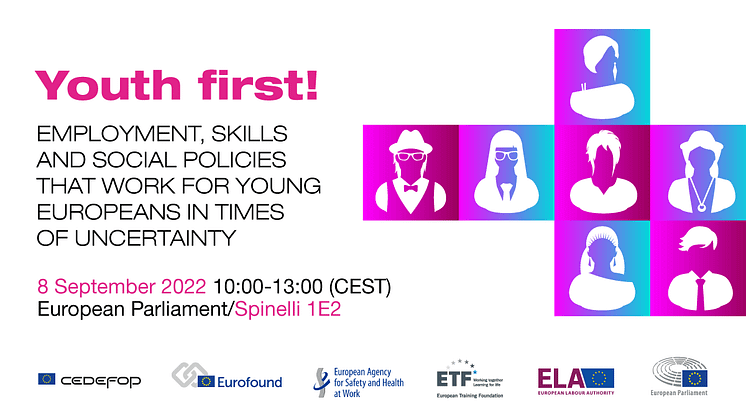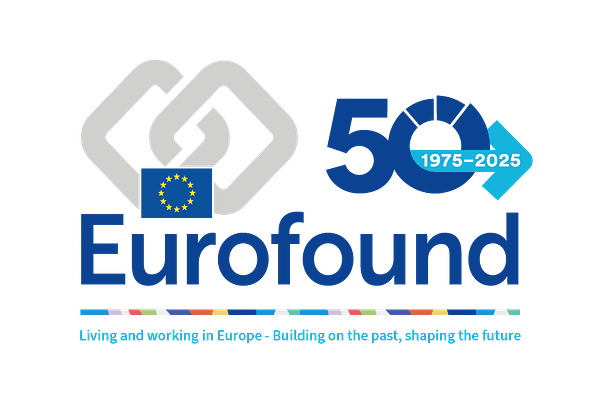
Press release -
EU social Agencies put youth top of the agenda
2022 is the European Year of Youth and the five EU Agencies use this important backdrop to offer key insights and expertise on the current quality of employment and working conditions of young people across the region. For the first time, the five EU Agencies came together to highlight their insights and explore the challenges and opportunities of young people in times of uncertainty at an event with the EMPL Committee in the European Parliament on 8 September.
The European economy and labour market is undergoing a substantial transformation, with established occupations disappearing, new ones emerging, job/task profiles within jobs changing and employment relations as well as work organisation adapting. The young generation is generally considered to be flexible, adaptable and interested in new adventures. They are looking for exciting jobs with a future – also driven by personal interests in digitalisation and greening.
However, many young people today struggle to access the labour market, and benefit from the new opportunities brought about by labour market change. Strategies and policy packages to support young people have had mixed results in Europe, with the financial crisis of 2008/2009 and the COVID-19 pandemic hitting young people especially hard. The wide-ranging economic impact of the war in Ukraine and the resulting uncertainty pose an additional challenge to this group, not only in Europe but also beyond its borders. Economic and social transformation increase labour market mismatch and inequality and are also more likely to disproportionally affect young people.
In addition, young workers are recognized as especially vulnerable for several reasons. These include their high employment in sectors and occupations associated with specific occupational safety and health (OSH) risks, for example the hotel and restaurant, construction and wholesale and retail trade sectors and occupations such as hairdressers and call-centre workers.
At the same time, the shift to a more digital and green, climate-neutral economy offers multiple opportunities to young people. Employers need people for promising green and digital jobs, which can be particularly attractive for young people. The young generation is motivated to contribute to change and often more engaged in education and training topics that equip them for ‘the future of work’ compared to older generations.
'Working conditions and job quality are as important for young people as other sections of the labour market, and arguably more so,' says Ivailo Kalfin, Eurofound's Executive Director. 'The European Working Conditions Survey shows that young people face particular challenges. They often start in insecure jobs: a third of 16 – 24 year-olds have a contract of limited duration, much higher than the EU average of 12%. 4% work without any contract whatsoever. Still, young people seem to be upbeat about their job prospects, with 60% reporting that their job offers good ones. We therefore need to ensure adequate labour market integration of young people, this will only work if we can offer them quality, stimulating and sustainable jobs. Bringing together their complementary expertise, the European Agencies aim to support EU institutions, Member States and other stakeholders in addressing policy challenges and capitalising on practices that work across Member States in times of disruption and transition.'
Many national policy measures prioritise job-ready young people rather than more disadvantaged groups. Policy makers need to have policy tools at their disposal that consider the degree of vulnerability and address NEET groups (Not in Education, Employment or Training) accordingly. Research can assist them in designing better policies that improve the links between labour market, education and VET (Vocational Education and Training) measures, and youth and social policy more generally, in a more coherent and holistic fashion.
Bringing promising future-oriented jobs within reach of young people requires complementing skills intelligence – forecasting today which skills might be needed in the future – with personalised insight into how they can get there, what skills they have or lack, and what would be good education or training options. Skills validation plays a crucial role here, as it helps tailor training to individual needs, and avoids people having to spend time in training on things they do not need.
More information Youth first! Employment, skills and social policies that work for young Europeans in times of uncertainty




